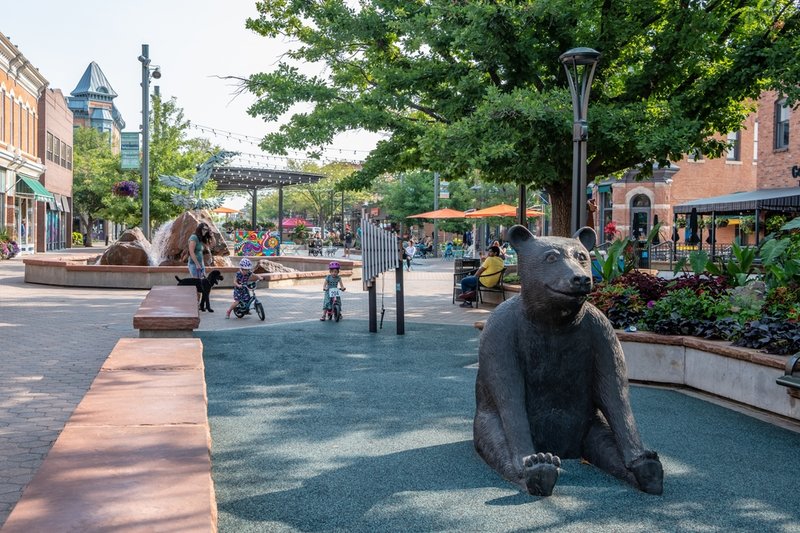Civic Assemblies in Action: Lessons on Civic Engagement from Fort Collins
Blog Post

May 21, 2025
In New America’s work on collaborative governance and civic trust, two themes consistently emerge: start with local experience, and listen to local stories to inspire broader leadership. At its core, co-governance connects the lived experiences of residents with those who hold decision-making power, enhancing civic agency. On April 16th, New America hosted Civic Assemblies in Action: Lessons on Civic Engagement from Fort Collins, co-sponsored by Local Policy Lab, American Public Trust, and Healthy Democracy. The event spotlighted the leaders behind a civic assembly in Fort Collins, Colorado.
The panel featured Rahmin Sarabi (Founder & Director, American Public Trust), Rupa Venkatesh (Assistant City Manager, Fort Collins), Justin Reedy (Program Director, Healthy Democracy), and Katie Knobloch (Assistant Professor/Associate Director, Center for Public Deliberation). The discussion was moderated by Dr. Hollie Russon Gilman, Senior Fellow at New America.
The Fort Collins assembly centered on the future of the Hughes site, a former football stadium demolished in 2016 that became a focal point for community advocacy. In 2021, a citizen-led ballot initiative passed with 68.61% voter approval, authorizing the city to purchase the site for public use. With numerous interest groups competing for influence, the city emphasized that any development must reflect the will of the community—especially since taxpayer dollars would fund it. This commitment to public input sparked the inspiration for the civic assembly.
The panel began with a presentation from Sarabi on the background of the citizens’ assembly model. Sarabi explained how the model brings out the silent majority, the broader public who are not typically involved in political spaces, and how it can help rebuild trust across partisan divides. It allows people to find common ground with their city in the room. Key elements of the assembly included a citizen lottery, expert engagement, and supermajority-approved recommendations.
A core principle of the Fort Collins assembly was empowering community members with a direct role in shaping outcomes. Residents not only participated in deliberations, but also as community guides trained by the Center for Public Deliberation. Community guides helped facilitate broader engagement by hosting mini deliberative conversations within their subset of the community. Data from these conversations informed the information that was later provided to assembly members.
The assembly, which concluded on May 4th, included a community led information committee that met in advance to ensure a shared foundation of knowledge. The committee, composed of 12 Fort Collins residents, reviewed and prioritized information gathered by community guides and nominated background speakers for the first weekend.
Over two weekends, participants studied the site’s history, reflected on community values, and deliberated on proposals. The results will be officially presented to the City Council by delegate representatives of the Assembly at a Council Work Session on May 27.
The assembly bridges formal government processes with grassroots insight, addressing frustrations about limited civic access. It also leverages tools like text outreach and AI to analyze public feedback, identifying areas of consensus and contention to inform discussions. As Rahmin Sarabi notes in From Polarization to Possibility, this model brings democracy to life. Speakers Katie Knobloch and Rupa Venkatesh emphasized how the process has unified various civic efforts in Fort Collins, with Mayor Jeni Arndt’s support, lending further legitimacy. While navigating competing interests is complex, the assembly prioritizes collaboration and centers the community’s voice—shifting influence away from special interests and toward inclusive public decision making.
Ultimately, the Fort Collins assembly is not just about the Hughes site—it’s about building a more inclusive, trusted, and participatory democracy.